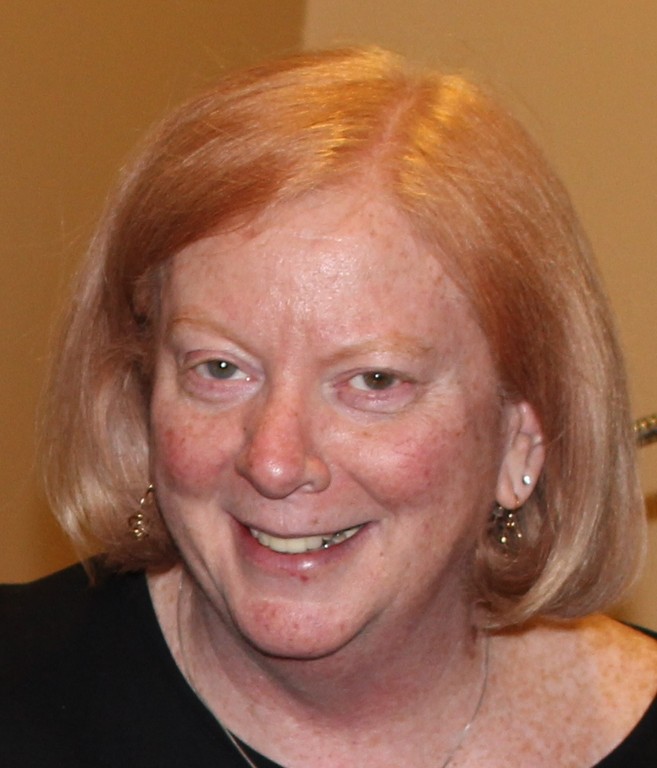
Since 1972, Re-Focus, a Providence-based nonprofit human service agency, has worked to meet the needs of Rhode Island adults with developmental disabilities through programs including literacy training and dream grants which give clients the opportunity to make one of their life dreams come true.
Christine Kavanagh is executive director of the organization, where the philosophy centered on clients is to be there, play, make their day, and choose your attitude. Kavanagh has been with Re-Focus since its inception and has served as executive director since 1981. The organization serves nearly 200 clients.
PBN: Allan Industries is sponsoring a Thanksgiving dinner for your clients and staff. How important are corporate philanthropic partnerships like this one to your organization?
KAVANAGH: Our corporate philanthropic partnerships are critically important to Re-Focus. Last year, we suffered from the state budget cuts to the disability community. So, corporate and individual support is even more critical. Through the generosity of our donors, we were able to establish the Re-Focus Community Centers over the last three years. We continue to offer a loving, trusting and challenging environment through our residential and shared living programs which serve close to 200 adults with disabilities. What a blessing for Re-Focus when Allan Industries and Gracie*s Restaurant invited our folks for a wonderful Thanksgiving dinner again this year. This type of corporate support and investment into our community truly impacts the lives of the people we serve every day.
PBN: Has corporate philanthropy, in terms of financial assistance, changed at all during these tough economic times for you?
KAVANAGH: Corporate philanthropy has changed for us since the financial downturn in that people and organizations that were able to be more generous in the past have to be more cautious today. However, we are very lucky to have a dedicated base of support which continues to respond to our needs.
PBN: What does your Dream Grants program do to enhance the emotional well being of your clients?
KAVANAGH: The Re-Focus Dream Grants have helped clients accomplish many life goals over the years. In the past, we have been able to fulfill a client’s dreams of swimming with the dolphins in Florida, travelling to Arizona to visit her sister, and purchasing furniture for their apartment that they would not have been able to otherwise afford. Dream Grants have been awarded to clients for the past 15 years, so that they may experience new opportunities such as, a performance at Providence Performing Arts Center, the ferry to Block Island or simply treating their parents to lunch as a thank you for all that they have done.
PBN: There is a large focus in this state on filling employment and skills gaps. Is that something you have confronted in your hiring, as it pertains to finding the right employee fit for your clients needs?
KAVANAGH: Although there is high unemployment in the state, sometimes it is still difficult to find the right staff to work with our folks. We look at the individual and how they would fit within our organization. Although some prospects come to us without formal training, this is not necessarily a barrier. Re-Focus offers extensive training for our staff to prepare them for working with the clients.
PBN: Have you encountered a challenge in finding volunteers in recent years due to the economy?
KAVANAGH: Re-Focus is lucky to have a dedicated group of volunteers that have supported the organization throughout the economic crisis. That being said, we are always looking for individuals to share their unique experiences with our community.













The RI Legislature’s cuts to programs that serve adults with developmental disabilities was immoral. These are people who through no fault of their own – and in many cases – with great effort and commitment, strive to live independent lives. Many of these folks also have physical disabilities that further limit their opportunities. In short – they are among some of our most vulnerable citizens. And yet – once they graduate from special education programs (at the age of 21) – they lose access to many services.
They are also largely invisible to the greater community, because we only tend to see a few at a time, at places like the market (working as a bagger perhaps, or with a group going shopping). And what do we, as a society, pay the people who care for these folks? Typically just slightly above minimum wage. So – I guess by our actions, we value the care of adults with disabilities about as much as buying fast food or cheap junk at WalMart. Seriously?
If you have an adult child with a disability, check out the Camphill movement in the US (an outgrowth of Waldorf philosophy) – there are currently about 10 of these communities across the country, where adults with developmental disabilities are treated equitably.